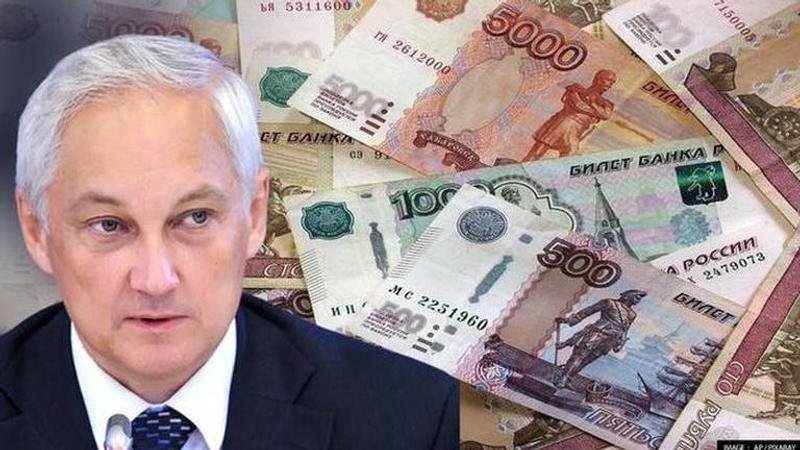Published 09:39 IST, June 16th 2022
Russian Dy PM Belousov asserts Ruble 'too strong' amid deflation and high interest rates
Russia’s First Deputy PM Andrei Belousov said that the rate of the ruble is ‘too strong’ now and the rate of 70-80 rubles per dollar would be more balanced.

Russia’s First Deputy Prime Minister Andrei Belousov on Thursday stated that the rate of the ruble is ‘too strong’ now and the rate of 70-80 rubles per dollar would be more balanced. In an interview with Russian news agency TASS, Belousov said the Russian currency is strong keeping in mind the deflation and high-interest rates.
"The ruble is too strong with us. 55-60 rubles per dollar is the excessively strong rate. Especially amid deflation and high interest rates," the official said.
"The rate from 70 to 80 rubles per dollar is the balanced one, comfortable for our industry," Andrei Belousov added.
Belousov also told the news agency that the year-on-year Russian inflation by the end of the year would be somewhere around 15% and as of June 10, it was 16.69%. Russia’s First Deputy PM’s remarks about the ruble being “too strong” came in the backdrop of Finance Ministry sources revealing that discussions are ongoing between Moscow and New Delhi for utilising the existing Rupee-Rouble mechanism to increase cheap oil imports. It was also reported that negotiations were underway to procure cheaper oil from Russia.
Russia-India negotiations underway for Rupee-Ruble system
It is pertinent to mention here that ever since Russian President Vladimir Putin announced the “special” military operation in Ukraine, his regime was completely cut off from crucial international currency markets along with the West imposing sanctions on Moscow. Therefore, Putin’s government decided to shift to payments to local currencies to ramp up bilateral trade.
India, which is buying 18% of its crude oil exports from Russia, has extensively studied the Rupee-Ruble system as a contingency plan to conduct business with its important partner while avoiding charges imposed by the West and trading in US dollars. Reserve Bank of India (RBI) allegedly met with executives from three Russian financial institutions, including VTB, Sberbank, and Gazprombank, in March to discuss the prospective Rupee-Rouble agreement, indicating significant progress. It is to mention here that the Rupee-Ruble arrangement was put together in 1953 under the Indo-Soviet accord as an alternative to collect dues.
Amid the Russia-Ukraine war, while the West has been calling on the international community to impose sanctions on Moscow and abandon its energy exports, top Indian officials have repeatedly made it evident that New Delhi has to safeguard its own interests. India vowed to continue to buy oil from Russia if offered at the appropriate price. Union Petroleum Minister Hardeep Singh Puri added, "We’ve energy relations with Russia, we buy crude from them but our total imports are not more than 0.2 per cent, we’re open to buying if terms are right, we’ve to look after our interests.”
Most recently, External Affairs Minister Dr S Jaishankar lambasted the West by stating that Europe should not think its problems are ‘world’s problems.' While speaking at GLOBESEC 2022 and responding to a question about India’s position in the Russia-Ukraine war, Jaishankar said, “Europe has to grow out of the mindset that Europe's problems are the world's problems but the world's problems are not Europe's problems.”
Image: AP/ Pixabay
Updated 09:39 IST, June 16th 2022




